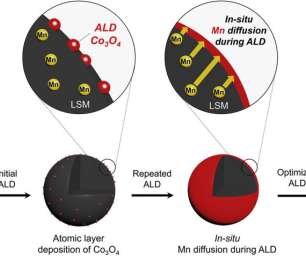University of Sydney team advances rechargeable zinc-air batteries with bimetallic oxide–graphene hybrid electrocatalyst
Green Car Congress
AUGUST 16, 2017
University of Sydney team advances rechargeable zinc-air batteries with bimetallic oxide–graphene hybrid electrocatalyst. Zinc-air batteries are powered by zinc metal and oxygen from the air. Zinc-air batteries are powered by zinc metal and oxygen from the air.












Let's personalize your content